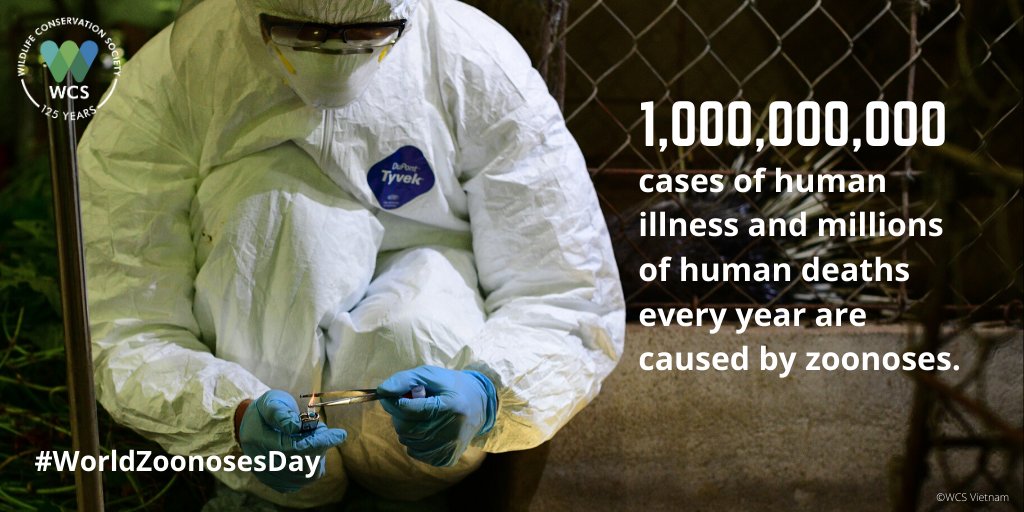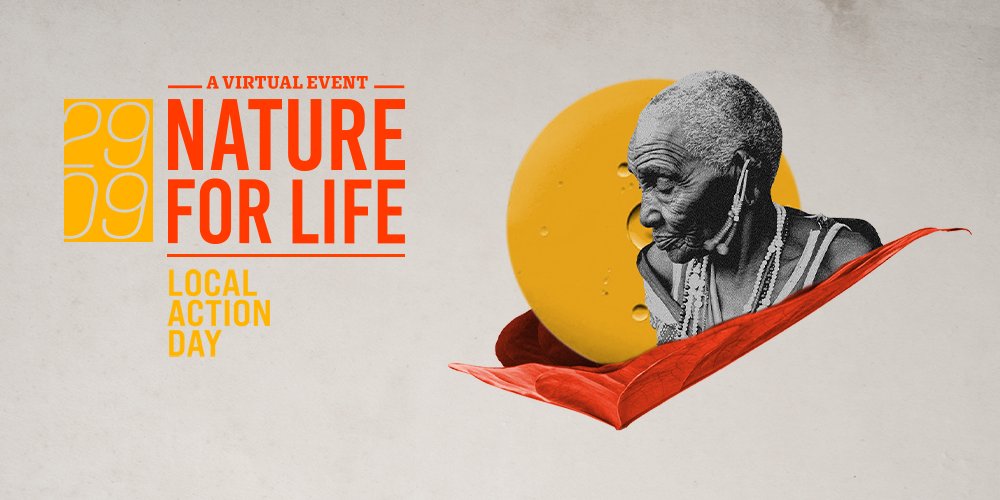Today is #WorldZoonosesDay.
Zoonotic diseases result from pathogens jumping between animals and humans. Think rabies, lyme disease, West Nile virus, HIV, Ebola, #COVID19.
As #COVID19 ravages our communities, we all understand the impact they can have. #EndTheTrade (1/9)
Zoonotic diseases result from pathogens jumping between animals and humans. Think rabies, lyme disease, West Nile virus, HIV, Ebola, #COVID19.
As #COVID19 ravages our communities, we all understand the impact they can have. #EndTheTrade (1/9)

Between 1940 and 2004, more than 335 emerging infectious disease outbreaks, involving 183 distinct pathogens, were reported worldwide. More than 50 per decade.
Today, the rate of disease emergence is increasing. #WorldZoonosesDay (2/9)
Today, the rate of disease emergence is increasing. #WorldZoonosesDay (2/9)

As we fight #COVID19, we can’t be shortsighted. We must act to reduce the long-term risk of future spillover events, which could lead to another pandemic. More: wcs.org/coronavirus #WorldZoonosesDay (3/9) 

Ecological degradation increases the overall risk of zoonotic disease outbreaks originating from wildlife. Among other things, our changes to the environment increase contact between humans, livestock, and wildlife pathogens. bit.ly/2Z01UX4 (4/9) 

Degradation is also at the core of 2 other major problems facing Earth—#climatechange and #biodiversitycrisis. As WCS’s @cyclonewatson, @soriding, @OakesLE wrote, proactively conserving and restoring remaining intact ecosystems is a key strategy. (5/9)
cnn.com/2020/04/22/opi…
cnn.com/2020/04/22/opi…
As managers of at least 35% of the world’s remaining intact forests, Indigenous Peoples are key partners in this effort. Supporting their ongoing stewardship will reduce the frequency of human exposure to wildlife and help minimize zoonotic spillover. (6/9) 

To prevent future pandemics, we must also end commercial trade in wildlife (particularly mammals and birds) for human consumption and close all such markets, as such trade is a known spillover risk. #EndTheTrade
Act: secure.wcs.org/campaign/tell-…
Act: endthetrade.com
Act: secure.wcs.org/campaign/tell-…
Act: endthetrade.com

Doesn't apply to Indigenous Peoples & local communities, for whom there may be little alt protein avail. We must value their eyes-on-the-ground & aid capacity for early reporting of sick animals & avoiding contact, to help reduce risk of outbreak spread.
pbs.org/wnet/nature/bl…
pbs.org/wnet/nature/bl…
Now is the time to act. #WorldZoonosesDay
For the latest on #COVID19, visit wcs.org/coronavirus.
(9/9)
For the latest on #COVID19, visit wcs.org/coronavirus.
(9/9)

• • •
Missing some Tweet in this thread? You can try to
force a refresh
















